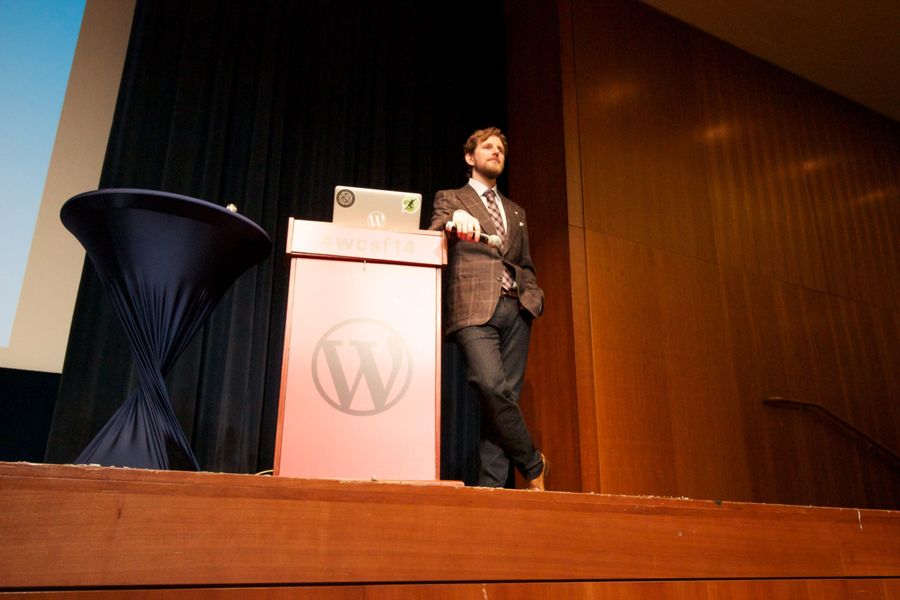Dave Bisset shared some of his thoughts in response to my random thoughts on travel and WordCamps post. One paragraph stood out to me:
Some organizers associate keynotes with “headline speakers”. I personally don’t like keynotes as a speaker organizer and in 12+ years with WordCamp Miami I only did two official planned ones. I’ve too often seen events have a single keynote that is often executed poorly – where it’s seen to put a spotlight on a local or national speaker that was meant to be used as a “see… see… our conference has someone important!”. You can tell this because their subject material didn’t apply to the majority of the audience – they were just there because they were a “big name”. I’m not saying keynotes are bad, but i’ve walked out of more awkward keynotes at WordCamps that I have feel good ones.
I’ve given three WordCamp keynotes and have also organized camps with and without keynotes. In that time, I’ve developed a handful of random thoughts on the topic.
- Not every WordCamp needs a keynote. It’s far from a requirement.
- When it is decided to have a keynote, I think it’s best to come in one of three flavors:
- If you are a new camp and want to bring in someone who can really help build up your community.
- If you have someone in your local community who should be given a chance to give “One Big Message”, a message that everyone should hear. The best one of these I have seen is Tracy Levesque at WordCamp Philly. Boone Gorges also gave a fantastic one at WordCamp NYC.
- If you can bring someone from outside that wouldn’t normally be a part of the WordPress community who has an interesting thing to share. WordCamp Lancaster 2017 had a local computer science professor.
- Keynotes should leave the audience asking questions of themselves, and this should be for just about everyone in the audience.
- My WordCamp Baltimore Keynote from 2013 “Citizenship in the Open Source World” aimed to ask what does it mean to be a part of Open Source.
- My WordCamp Philly 2015 Keynote “Why WordPress Works This Way” aimed to get the audience to question what philosophies they wanted to use in their decision making
- My WordCamp St. Louis 2016 keynote was somewhat last minute, so I based it on my 2015 WordCamp Philly one. Though this time it was more based on “We can learn from something without emulating it exactly” and asked “What can we learn from WordPress?”
- A poorly executed keynote makes a sizable portion of the audience question why they were there.
- Keynotes are opportunities for “Big Messages”, not minutia. It’s not a time for “How”, it’s a time for “What”.
- You should never take questions at the end of a Keynote. If you are giving one, it’s your stage and your message. The hallway is the right place for the conversation to continue.
- Opening/Closing/Mid day keynotes all are ok.
- I would rather no keynote than a bad keynote.
- I would rather no keynote than an ok keynote.
- A “regular talk” should not become a keynote simply because they are the biggest ”name” attending. Great keynotes and Great instructional talks are different
- You still want to be careful with your scheduling. Don’t put another developer talk at the same time as Andrew Nacin preparing an “Advanced Topics in WordPress Development” talk.
- It’s ok to save a good talk idea for when you are going to keynote. Or let organizers know in your application that you only want a specific topic considered if it would be a keynote.
Comments and ping backs are open: What are your thoughts on keynotes and WordCamps?
